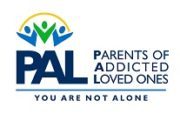There are any number of ways to look at the topic of boundaries; many are helpful, and some are confusing. One of the more useful tools I use with my clients when discussing boundaries is the “My Personal Bill of Rights” handout.
Below is a copy with some follow-up questions and additional comments:
- I have the right to be treated with respect (basic respect is the cornerstone to healthy relationships.)
- I have the right not to take responsibility for anyone else’s problems and behavior (it is imperative that we ‘give’ people responsibility for their decisions and actions and allow consequences to teach – don’t rescue and don’t feel guilty for what is not yours!)
- I have the right to get angry (anger is a legitimate feeling/response. However, we also bear responsibility for how we choose to express our anger.)
- I have the right to make mistakes (perfectionists ….are you listening?)
- I have the right to say “No” (you can and must learn to say “no”. Remember… it’s easier to reverse a “no” than it is a “yes”.)
- I have a right to my own feelings, opinions and convictions (be clear in what you believe and why you believe it. If unsure, solicit input from those you trust.)
- I have a right to change my mind or to decide on a different course of action (if we make a mistake…see Right #4… do not continue with the same course out of principles or stubbornness.)
- I have the right to negotiate change (speak up and be assertive, but understand you may not get everything you wanted in the negotiation. Know what you need – not want.)
- I have the right to ask for emotional support or help (move past fear of embarrassment or worry of being a burden; give others the choice of whether to help or not.)
- I have the right to protest unfair treatment or criticism (like Right #8, speak up for yourself. You do matter.)
When reading through these, notice or ask:
~which of these rights makes me feel uncomfortable? Why?
~which of these rights is the most difficult for me to act on? What’s my fear or resistance?
~which of these rights am I most comfortable with and best at executing?
~which right do I need to focus on as my area of growth/change?
I hope this stimulates some good conversation within your PAL group.
On The Journey With You,
Ron
Ron Paterik is a practicing psychotherapist in Phoenix, Arizona with over 20 years’ experience. He is a Licensed Independent Substance Abuse Counselor and a Whole Life Leadership Mentor at Grand Canyon Counseling.


Comments are closed.